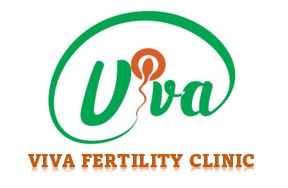
1. What is IVF, and how does it work?
IVF (In Vitro Fertilization) is an assisted reproductive technology (ART) in which eggs and sperm are combined in a lab to create embryos. After a few days of incubation, the embryo is transferred to the woman’s uterus with the goal of achieving pregnancy. IVF is often recommended when other fertility treatments are unsuccessful or for specific infertility issues.
2. Who should consider IVF?
IVF may be considered if:
- You’ve been trying to conceive for over a year without success.
- You are over the age of 35 and have not conceived after 6 months of trying.
- There are male fertility issues, such as low sperm count or motility.
- You have blocked or damaged fallopian tubes, ovulation disorders, or endometriosis.
- You’ve had unsuccessful fertility treatments like IUI (Intrauterine Insemination).
3. What should I expect during my first visit?
During your first visit, you will meet with our fertility specialists to review your medical history, discuss your fertility concerns, and undergo initial fertility tests. We will guide you through the necessary investigations and create a personalized plan tailored to your reproductive goals.
4. How is male infertility tested?
Male infertility is typically evaluated through a semen analysis, which assesses sperm count, motility, and morphology. Additional hormone tests, such as FSH and testosterone levels, may be required to gain a comprehensive understanding of male reproductive health.
5. What tests are involved in female infertility evaluation?
Female fertility testing may include hormone assessments (e.g., FSH, LH, AMH), ovulation testing, ultrasound scans to assess ovarian function, and HSG (Hysterosalpingogram) to check for blockages in the fallopian tubes. These tests help determine the best course of treatment.
6. Is IVF painful?
IVF involves several steps, including hormone injections, egg retrieval, and embryo transfer. While some steps, like injections, may cause mild discomfort, the egg retrieval process is performed under sedation to ensure comfort. Most patients experience only mild cramping after the procedure.
7. How long does the IVF process take?
A typical IVF cycle takes about 4 to 6 weeks from the beginning of ovarian stimulation to embryo transfer. This timeline may vary depending on individual response to medications and other factors.
8. What are the success rates of IVF?
IVF success rates depend on various factors such as age, the underlying cause of infertility, and the quality of eggs and sperm. At Viva Fertility Clinic, we strive for high success rates, with success rates reaching 90% for patients with favorable prognoses and 80% for those with more challenging conditions.
9. What are the costs involved in IVF treatment?
IVF costs vary depending on the complexity of the treatment plan, whether additional procedures like ICSI or PGT are required, and the number of cycles involved. For specific pricing details, please contact our clinic for a personalized consultation.
10. How do I prepare for IVF treatment?
Preparing for IVF involves both physical and emotional readiness. We recommend maintaining a healthy lifestyle, reducing stress, and following the guidance of our fertility specialists on any medications or supplements. We will guide you through every step to ensure optimal preparation for treatment.
11. What if my IVF cycle fails?
If an IVF cycle does not result in pregnancy, we will review the outcome and explore potential reasons for the failure. Our team will provide support and discuss alternative treatments, including additional IVF cycles, depending on your individual situation.
12. Is counseling available during fertility treatments?
Yes, we offer counseling services to support our patients emotionally throughout their fertility journey. Our counselor provide guidance and emotional support to help manage the stresses associated with infertility and treatment.
